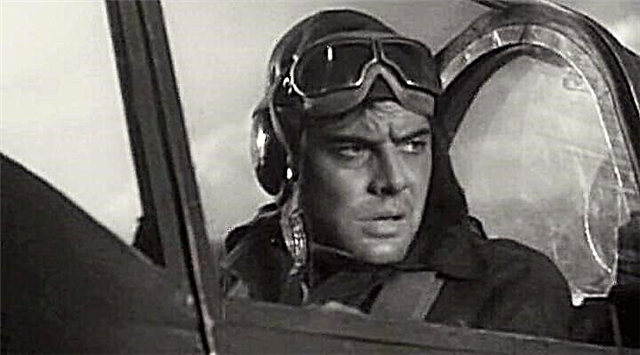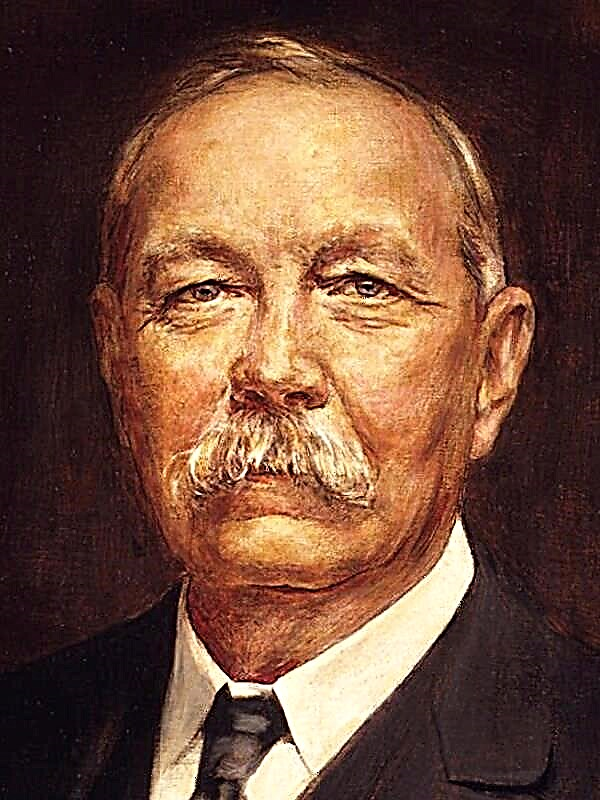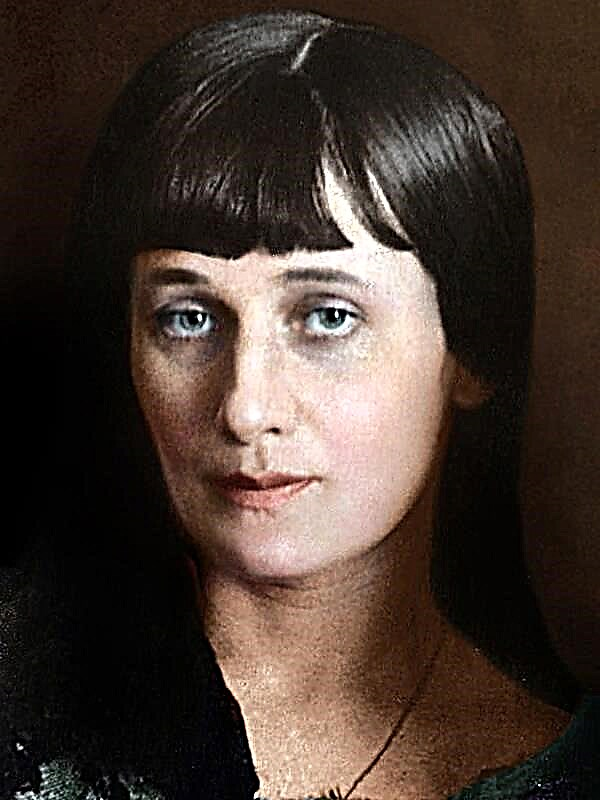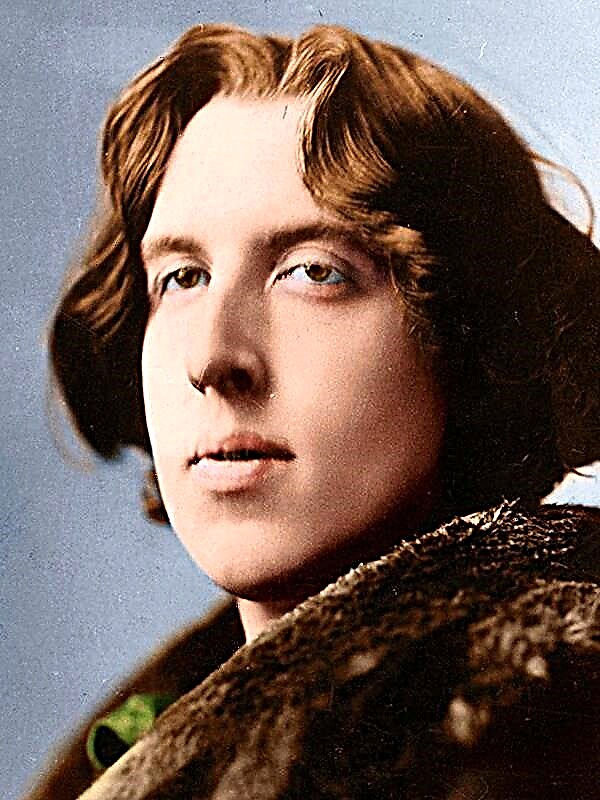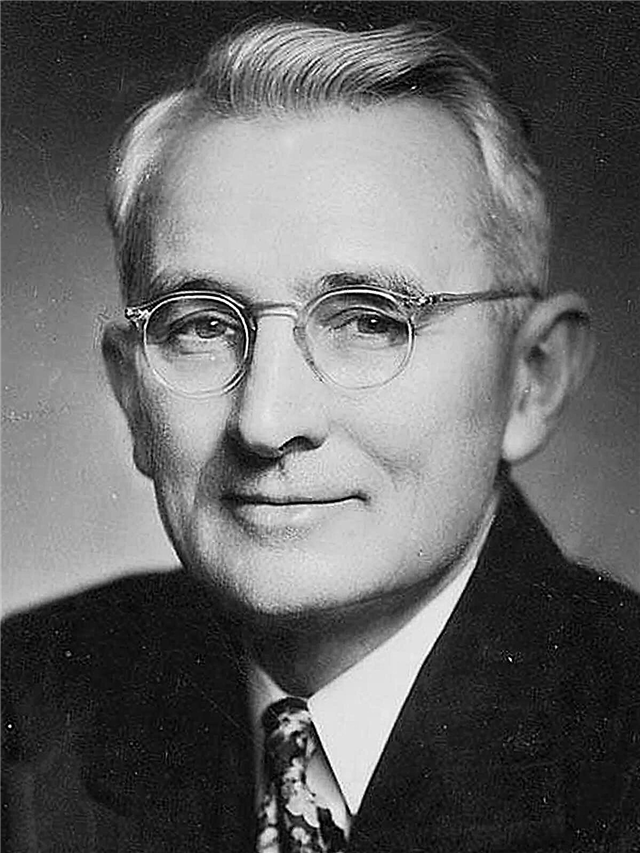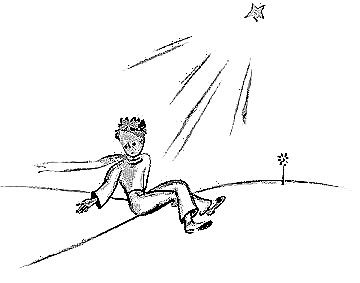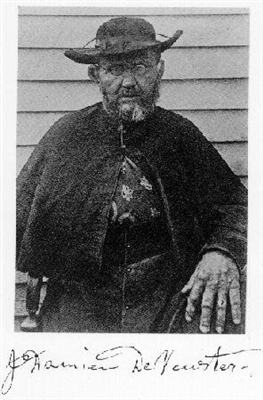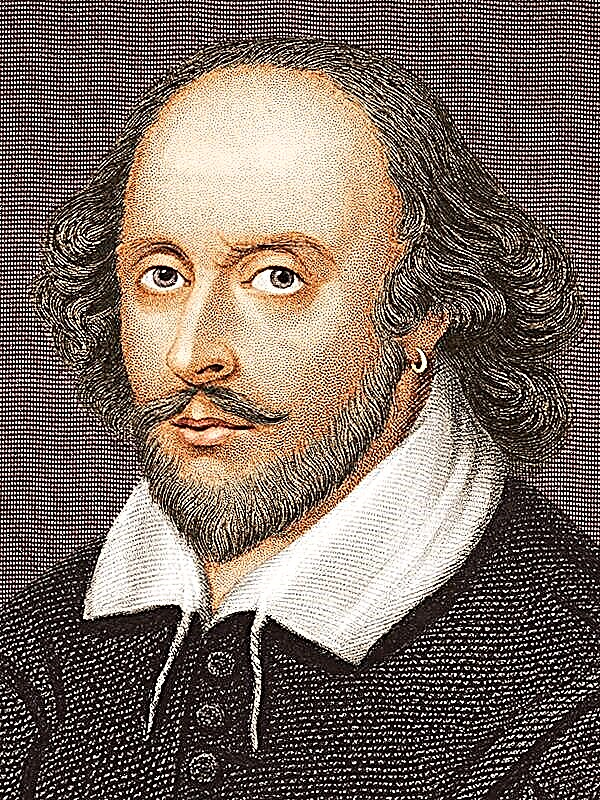“Quiet Don”, like “War and Peace”, is worth reading to everyone to understand the whole essence of Russian realism and feel the colorful atmosphere of the historical past of our country. Analysis of the book from Literaguru will help you recall the main events and characteristics of this work in order to successfully prepare for an essay or report.
History of creation
M. A. Sholokhov conceived a work on the role of the Cossacks during the revolution as early as the beginning of the 1920s. 1925 - the beginning of the writing of the manuscript, tentatively called "Don", in which the writer begins with the Kornilov uprising. However, with such a link, the motivation of the Cossacks was unclear why they went to the uprising. Then the writer abandoned the original plan and began to think more broadly, and so a large-scale epic turned out.
The changed design also affected the name. From the "Don" born "Quiet Flows the Don", the last name contains a fragment of folk life, folklore. The whole idea took shape in 1926. The novel was published in the journal October. The author received various, sometimes opposing reviews of his work. He was called both a genius and a renegade who distorted events. However, time, the most important judge, put everything in its place, and now this novel is the pearl of Russian literature.
Genre, direction
The Quiet Don is a vivid representative of realism with elements of naturalism. Here, the characters express themselves as typical representatives of eras, while maintaining their individuality. Events are considered in development and change. Naturalistic elements are introduced by the writer to create a better flavor, to describe in detail the atmosphere, which is sometimes frightening (for example, some military episodes are described so scary and sometimes disgusting).
The genre of the work is quite rare in literature - this is an epic novel, that is, a large epic work with a complex narration, a large number of heroes and events, and the events are not private, but nation-wide. The writer focused not only on heroes, but also on the fate of the whole people in the era of a radical change.
Essence
The main events unfold in the villages and farms of the Don. The novel talks about the fate of the Cossack Grigory Melekhov in the context of global historical upheavals. In the beginning, the hero has a large and happy family: father Pantelei Prokofievich, mother Ilyinichna, brother Peter with his wife Daria and a child, sister Dunyashka.
Gregory is going to the service, but his attention is attracted by the neighbor Aksinya Astakhova, he begins to look after her. The woman, although married, did not know love all her life, so they met with Melekhov while her husband was in the service. But everything comes to an end: Stepan Astakhov returned, and Gregory married Natalia. The girl Korshunova fell in love with Melekhov without memory, but he soon confessed to the irresponsibility of her feelings.
Soon Gregory again met with Aksinya and went to the Berry estate of the landowner Listnitsky, where they were domestic workers. Aksinya gives birth to a girl. And Gregory soon leaves for service. There he knew injustice and arbitrariness. And Natalia at this time does not stand shame and gossip and tries to commit suicide, but she remains alive. The daughter of Gregory and Aksigny dies, heartbroken mother could not resist the courtship of the owner’s son, Eugene.
Gregory is seriously injured, in the hospital he meets with Garanzh, who instills anti-monarchist sentiments in him, and then receives a vacation and goes to Yagodnoye. Gregory learns about the betrayal and returns to the family with whom Natalia lives, the spouses begin to live together again. But you have to return to the front, where the Bolsheviks are actively campaigning. Gregory goes to them after the revolution. He serves with the Reds, but one day he sees how they brutally crack down on prisoners, which leads him into confusion. Soon, Melekhov was injured and went on vacation. Gregory did not return back, and later joined the rebel movement of the Cossacks. During the first performance, Peter Melekhov was killed.
During the uprising, settlements move from one side to the other. Because of this, the Melekhov family, like many other families, experiences various inconveniences. And Gregory takes revenge for the death of his brother, so he is cruel to the enemy. To forget grief and drown out the mental crisis help alcohol and women walking. Natalya learns about this bitterly.
Gregory accidentally meets with Aksinya, communication resumes. When Melekhov left, through the farm they drove the captured communists, who were torn to pieces by the inhabitants, the widow of Peter Darya took an active part in this. Gregory could not prevent the death of his acquaintances of the Communists, only a childhood friend, Mishka Kosheva, survived.
The rebels retreat, Gregory takes Axinho with him. And Daria is awarded for her “feat”, but she puts aside the prize money for something, but does not give it back to her family. As she admitted to Natalia, the woman wanted to be treated for seized syphilis. But she changed her mind, she was going to commit suicide. In order not to suffer alone, Daria tells Natalya that Gregory and Aksinya are together again. This is a blow for a woman, she makes a firm decision not to give birth from an unfaithful husband (at this moment she is pregnant). The abortion was unsuccessful, Natalya bled and died. Soon after her death, Daria drowned herself. Gregory feels guilty, moving away from Aksinya.
Later, he again came home for a sad occasion - he contracted typhoid. But after recovery, reconciled with Aksinya, they retreated already together. But the beloved herself fell ill, she had to be left in custody with people in one of the settlements. Gregory’s grief is aggravated by the death of his father from typhoid. And he himself becomes ill with a terrible disease, but, fortunately, he is recovering.
Soon, the rebels finally lose, after an unsuccessful attempt to evacuate Gregory and his orderly Prokhor Zykov arrive at the Reds. The red power has been established so far, Melekhov blames sins, and at this time Mishka Kosheva goes to Dunyashka, his intentions are serious, despite the fact that he killed Peter. They are getting married.
When Gregory returned home, as he hoped, forever, he realized that his sins would not be forgiven. Aksinya, children, peaceful life - all this is impossible. They want to arrest Melekhov, he leaves with Aksinya. But a stray bullet kills her. And Gregory by chance gets into the Fomin’s gang, forced to stay for several months. They have absolutely no future. Melekhov leaves them, returns home and hugs his son. This is what the novel is about.
The main characters and their characteristics
- Grigory Melekhov - The central character of the novel. He has slightly slanting dark eyes, black hair, a hunchbacked nose, his appearance is close to the eastern one, he is lean and tall in physique. The hero is wayward, ardent, proud, assertive, his sense of justice is aggravated (all throwing came from this). With all the breakdown qualities, he is economic and hardworking, he is drawn to the earth, his family.
- Aksinya Astakhova - beloved of the protagonist. Outwardly, the heroine is “viciously beautiful” and bright: dark hair, eyebrows, beautiful black eyes, curly hair, a beautiful figure (“healthy fullness”). Her life is poor in joys, which has developed perseverance, patience, fighting spirit (Gregory did not want to give up “her”), tact. At the same time, she is affectionate, economic, passionate and courageous, which causes sympathy, despite her weaknesses. She cannot be alone, therefore she is not different in fidelity.
- Natalya Melekhova (Korshunova) - the wife of the protagonist. Outwardly, she is beautiful and stately, her hair is black and glossy, her eyes are gray, and her body is strong. The heroine is kind, hardworking, obedient, respectful, modest, restrained, filled with spiritual nobility. However, such qualities as stubbornness, revenge and obsession are also characteristic of her. Due to resentment against Gregory, she ruins the life of a born child.
- Pantelei Prokofievich - the father of the protagonist. Gregory is like a father, only the latter wears an earring in his ear and is lame. The hero has seen a lot in his lifetime, but he has not learned to pacify his fury, he is hot and hot-tempered, while he trembles before the generals. He has the training of an old soldier, he is devoted to the monarchy, respects the traditions of the Cossacks and stands for patriarchy.
- Ilyinichna - mother of the protagonist. Once she was beautiful, but the work, resentment and beating of her husband, his betrayal, quickly made the heroine older. Her image is an expression of boundless maternal love. This is a wise, patient and submissive woman who took all the chores on raising children and building a family spirit.
- Peter Melekhov - brother of the protagonist. He is short, squat, wheat-colored hair, brown eyes, snub nose. The economic hero, trying to profit from everything, kind, humble, flexible, clever with bosses, moderate in everything.
- Daria Melekhova - Peter's wife. She is tall, thin, thin tinted eyebrows stand out in the face. The heroine is not loyal, she changes at any opportunity, while lazy, cynical, frivolous, cheeky, but cheerful, never discouraged.
- Dunyasha Melekhova - the sister of the protagonist. She is her father’s favorite, like him, like Gregory. The heroine is hardworking, practical, quick-witted, capable of strong love.
- Mikhail Koshevoy - lover and husband Dunyashki, childhood friend of the protagonist. This is a stocky, dense man, he has dark eyes and golden hair, a forelock descends on his forehead. A stubborn, hardworking hero, he is a Bolshevik from beginning to end, which divorces him from Gregory.
Main themes
The main theme of the epic, of course, the revolution, which grew into a civil war, and its influence on the life of the whole people. The confrontation between the Reds and the Whites put Gregory and Peter, Gregory and Michael on different sides. The life of the protagonist turned upside down and torn apart. He fought for a long 7 years. He was tormented by conscience for the murders, especially since he could not choose those with whom to be, so he killed both his own and those of others. Most of the Melekhov family died due to the direct or indirect influence of the events of the civil war.
The theme also includes such eternal themes as love, family, homeland.
- Love appears in different guises: the unforgettable passion of Gregory and Aksinya, Natalya’s devotion, their common tragic love triangle, the love and cause of revolution for Mikhail Koshevoy and Dunyasha, for Bunchuk and Anna, Daria’s windy love, the all-consuming motherly love of Ilyinichna and Natalya for their children. Perhaps the feelings here are not as exalted as in the works of the 19th century, but they are no less strong and real.
- A family - the basis of life for the main characters, it contains the meaning of existence, the house is truly a quiet haven. The theme of the family is one of the main themes in this novel. So, Gregory constantly wants to return to his family, forget about wars and blood and enjoy peasant life. Even in everyday worries lies the deep love of the whole family and peace.
- Homeland Theme intersects with family. After all, the fatherland is, first of all, a native farm, house, family. This is a place that you want to protect in order to return to it later. Here is one of the reasons for throwing Melekhov: he thought, of course, about justice, but also about how the next regime will affect his homeland, for which it is worth fighting to the end.
The theme of the Cossacks also confronts the reader. The revolution was perceived by the Cossacks ambiguously: most of them were free, had enough land, so they held on to their good and did not want to give it back, because they had earned it with their labor. For many Cossacks, the revolution, the civil war and the ensuing collectivization are a disaster, which eventually destroyed this class of society.
Main problems
The issues of the Quiet Don are diverse.
- One of the main issues is the choice of a person, the problem of finding the truth. It appears here in a broad sense as the choice of a party in a bloody civil war. The main character cannot do it, because there are very few positive aspects in the murder of his own people, in blood and injustice on any side. But life makes you choose, even when you really do not want it. In the narrow sense, the problem of choice confronts Gregory in love, he cannot choose one woman: passion for Aksinya does not let go, but Natalya also evokes warm feelings.
- Civil war issue, revolution, and indeed war as a whole is decided from the pacifist point of view. The writer does not paint military panoramas as pictures of courage and bravura courage, for him it is a tragedy. Of course, the author supports the side of the Bolsheviks, but he does not portray them as one-sided-positive, both opposing camps are ambiguous, one cannot consider anyone absolutely right.
- The problem of the crisis of moral values the author reveals from a traditional, but not outdated and almost a century later side: he condemns war, murder, debauchery and betrayal, meanness and cowardice, proclaiming eternal moral guidelines: family, homeland, love and truth.
- The problem of fathers and children confronts us in the Melekhov family. Pantelei Prokofievich is an authoritarian father, he is the real head of the family, he makes all decisions, and no one can object to him, even adult sons. But gradually the hero loses his power, this has a symbolic meaning, since everything happens during the civil war: revolutionary events also changed traditional families.
The main idea
The meaning of the whole novel lies in the last episode, when the exhausted Gregory returns home after many years of wandering, war and blood. He meets his son, learns that his daughter died of pharyngeal, takes the boy in his arms and understands that everything that is left of the hero is contained in this child, which connects him with the unkind world.
Thus, the idea of the epic novel is that home, family, homeland are the basis of a person’s life, this is the most important and the most eternal thing, you should strive to your native places, because everything else passes and is not important.
What does it teach?
What can the novel teach, why is it said above that everyone should read it? Firstly, this work contains all of Russia, all folk roots and origins. After a hundred years, readers, not Don Cossacks at all, empathize with the heroes, live with them. This is a definite sign of a talented work.
Secondly, the epic translates pacifist pathos, the eternal values that modern thinkers sometimes try to challenge. By the example of this highly artistic, but simple work, we understand how important such concepts as family, pure and faithful love, the Motherland, kindness, mutual assistance. The author’s conclusion is simple: high morality should become the basis of interpersonal relationships, otherwise people are doomed to new bloody episodes that will ruin their life.
Criticism
Criticism was divided into two camps: unconditionally positive and sharply negative. The first group includes A. Serafimovich, who noted the realism and vividness of the images, F. Weisskopf, who compared The Quiet Don to War and Peace, D. Aldridge, who considers the book to be Russia's discovery for foreigners, K. Dietrich, A. Style, R Roland, A. Tolstoy and others.
Negative criticism is most clearly represented by A. I. Solzhenitsyn, who argued that M. Sholokhov could not write such a large-scale novel in the absence of experience and education. Later, the authors proposed a white officer, from whom the writer stole the manuscript and printed under his own name. In addition to such criticism, some Soviet reviewers believed that the writer did not glorify Soviet power enough and sympathized with the whites.
Whoever says anything, it is best to independently make an opinion about the book and enjoy reading it.

